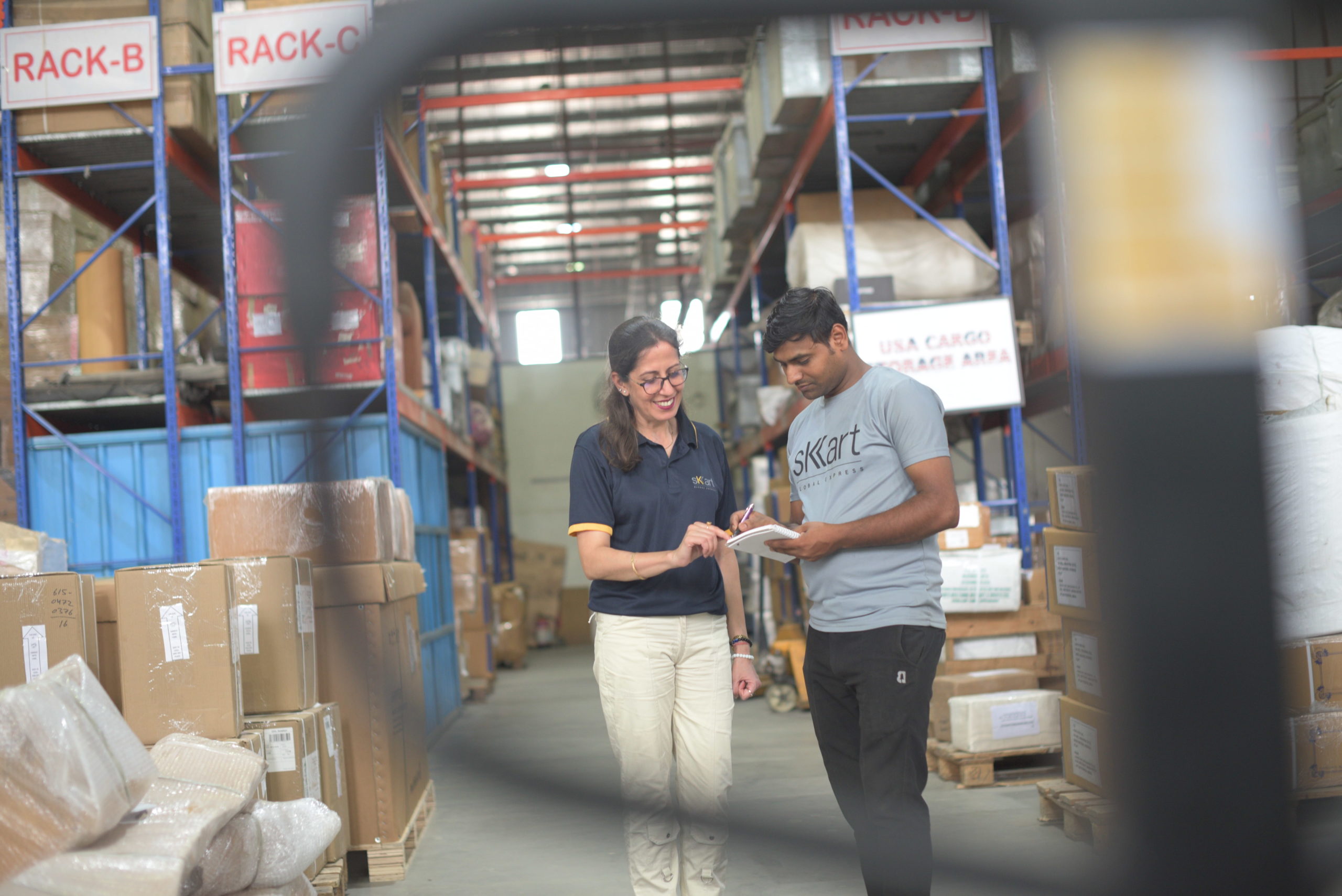The Importance of Operational Excellence in Logistics
Logistics, the backbone of supply chain management, revolves around the movement, storage, and delivery of goods. Operational excellence in logistics is about efficiency and precision and meeting and exceeding customer expectations. It ensures that every process, from order receipt to final delivery, is executed smoothly and efficiently, enhancing customer satisfaction and maintaining a competitive edge.
Enhanced Efficiency and Productivity
Operational excellence in logistics is a powerful tool that allows you to streamline processes, eliminate waste, reduce inefficiencies, and boost overall productivity. We at sKart deal with complex processes such as having a consortium of multiple service providers, a comprehensive service range with different requirements, and last-mile delivery. Any delay or inefficiency in these processes can lead to increased costs, broken supply chain, and dissatisfied customers. However, with operational excellence, we have transformed these challenges into opportunities for growth and success.
At sKart, we have increased operational efficiency by adopting best practices, leveraging advanced technologies, and continuously improving processes. For example, optimizing transportation routes, automating warehouse operations, and employing real-time tracking systems have significantly reduced operational bottlenecks, enabling faster and more accurate deliveries. This, in turn, improves productivity, reduces operating costs, and enhances profit margins.
Cost Reduction and Profitability
Cost control is a crucial aspect of operational excellence. In the logistics industry, where profit margins are often tight, companies must continuously seek ways to reduce operational costs without compromising service quality. Operational excellence enables logistics firms to identify cost-saving opportunities such as optimizing fuel consumption, reducing vehicle idle time, minimizing warehouse storage costs, and improving labour efficiency.
We in sKart worked on maintaining lean operations and minimizing waste. Operational excellence provides a roadmap for achieving this. For instance, utilizing infra and human resources for various products made the process efficient and cost-effective, allowing employees to learn and grow. These efficiencies allow companies to offer competitive pricing to customers while maintaining healthy profit margins. With operational excellence, one can be confident in their ability to control costs and improve their bottom line.
Improved Customer Satisfaction
Customer satisfaction is not just a metric but a critical factor for the long-term success of any logistics company. Timely and accurate delivery of goods is one of the most essential service metrics in the logistics industry. In my years of experience, one thing the customer wants most is predictability and prior information in case of any exceptions. Achieving this can only happen through proactive tracking.
By incorporating technology, sKart has gained the capability to share more predictable and reliable services, which is crucial for customer retention and loyalty. Customers are likely to continue using a logistics provider that consistently meets their delivery expectations. In addition, operational excellence allows logistics firms to provide real-time visibility into the status of shipments, offering customers greater transparency and confidence in the delivery process.
Risk Mitigation and Compliance
Logistics operations are exposed to numerous risks, including delays, accidents, theft, and regulatory violations. Operational excellence involves implementing robust risk management strategies to mitigate these risks. By ensuring that processes are standardized, well-documented, and regularly monitored, logistics companies can reduce the likelihood of disruptions and remain compliant with relevant laws and regulations.
For instance, adhering to safety standards in transportation and warehousing reduces the risk of accidents and ensures compliance with health and safety regulations. Furthermore, implementing effective contingency plans helps logistics companies manage unforeseen events such as supply chain disruptions, natural disasters, or political instability, ensuring the continuity of operations and minimizing negative impacts on the business.
Sustainability and Environmental Responsibility
In today’s business environment, sustainability is becoming increasingly important. Logistics companies are major contributors to carbon emissions, and there is growing pressure on the industry to reduce its environmental impact. At sKart, we’ve made a conscious decision to move towards EV vehicles and have digitized many parts of operations as part of our commitment to adopting green technologies.
Focusing on sustainability as part of our operational strategy has reduced our company’s carbon footprint, improved our corporate reputation, and complied with environmental regulations. This benefits the environment, enhances the company’s brand image, and attracts environmentally conscious customers.
Conclusion
In conclusion, operational excellence is vital for logistics companies to stay competitive and thrive in a fast-paced, dynamic industry. Logistics firms can achieve better business outcomes and long-term success by enhancing efficiency, reducing costs, improving customer satisfaction, mitigating risks, and promoting sustainability. Operational excellence is not a one-time achievement but a continuous improvement, innovation, and adaptation to changing market demands and technological advances. Companies prioritizing operational excellence will be well-positioned to meet future challenges and deliver superior value to their customers.




